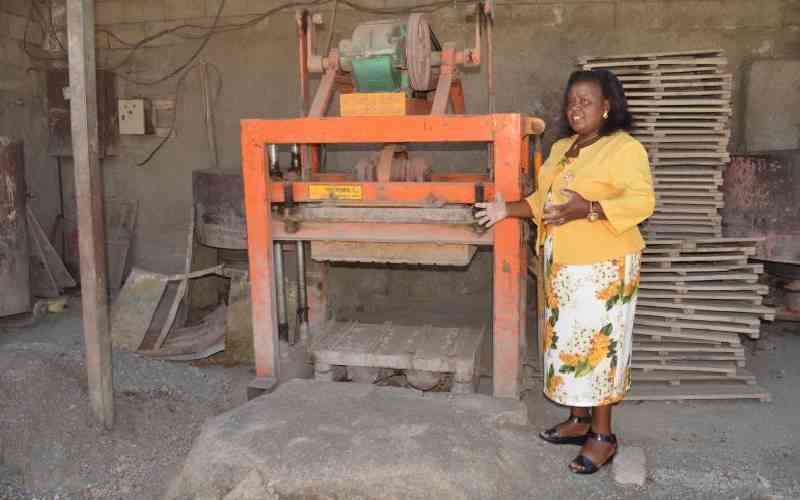×
The Standard e-Paper
Smart Minds Choose Us

After working as a secretary for two decades in an international School in Nakuru town, Martha Waititu finally resigned to venture into business.
Ms Waititu took the plunge 10 years ago after identifying a gap in the supply of modern hollow concrete blocks in the male-dominated industry.